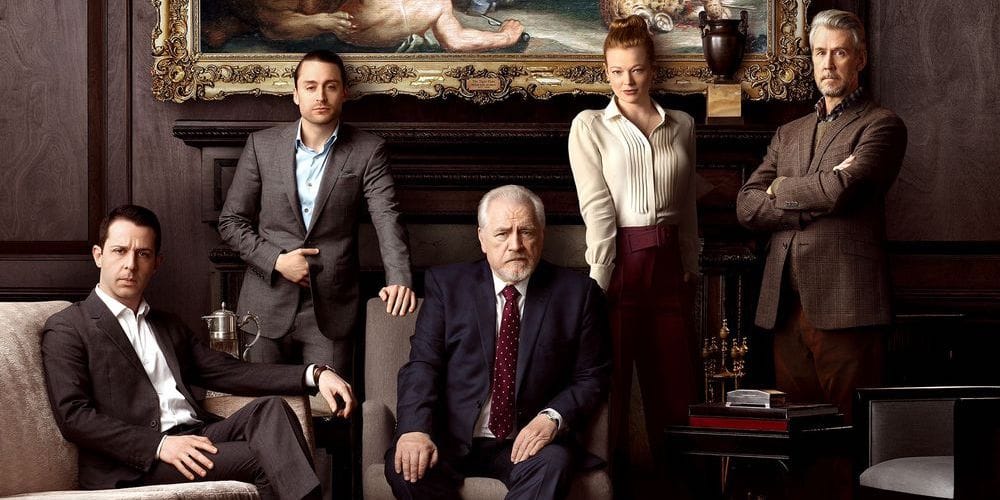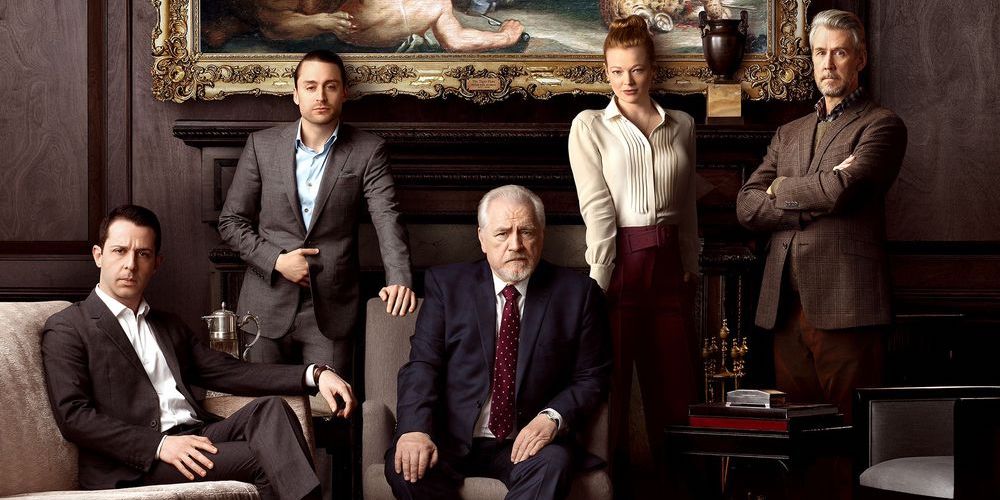Succession: An Exploration of Power and Pride
The third season of “Succession” wrapped up on Dec. 12. Managing Editor Theo Hamilton ’23 breaks down the reasons to watch the show — from its sharp wit and fascinating characters to its intriguing themes and brilliant acting.


“Power corrupts; absolute power corrupts absolutely.” It’s a tale as old as time, but few shows have managed to portray the toxic influence of wealth as insightfully or hilariously as “Succession.” Halfway between a dark comedy and a prestige drama, the HBO series (you should be able to watch it through XFINITY On Campus) chronicles the endless infighting of the Roy family, owners of a Fox News-style right-wing media conglomerate, as they jockey for power within the company. The third season of “Succession” just finished on Dec. 12, further developing the series’ mixture of fascinating characters with sharp comedy and social commentary.
At the series’ center is the family’s aging patriarch, Logan Roy (Brian Cox), a self-made businessman who is utterly convinced that he has earned his position at the top of the world. In reality, Logan is more American Nightmare than American Dream, clinging to power not by being smarter than anyone else, but by being louder, more intimidating, and more determined to win at any cost. Or, as he describes his life philosophy, “Sometimes it really is a big dick competition.” Turning 80 at the start of the series, Logan finds himself stepping up his violent performance of masculine authority. He begins lashing out at the slightest sign of opposition and gleefully thwarting his children’s attempts to take on a role that he is clearly no longer capable of performing himself. Overall, Logan is one of the most watchable villains I’ve ever seen: equal parts pitiable and terrifying, out of touch and unstoppable, disgusting and charismatic.
Logan’s four children are caught in his orbit throughout the show, each balancing their own ambitions, a desire to escape their toxic family, and a twisted sense of loyalty to their father. It would have been easy to cast any of these characters as the show’s protagonist, but each of his children instead appears to be as deeply misguided and status-obsessed as Logan.
Kendall (Jeremy Strong) is comically insecure and driven forward by a desire to prove to the world that he is a sharper businessman than his father. Siobhan (Sarah Snook) is probably the most competent of Logan’s children but is kept out of the company at the start — primarily for being a woman. As she works her way into the corporate world, however, Siobhan rapidly loses sight of her morals and finds it easier and easier to justify the actions that benefit her most, no matter their consequences. Roman (Kieran Culkin) is witty and a borderline sociopath, constantly utilizing humor as a means to avoid responsibility for his decisions. Connor, the eldest Roy sibling, is a libertarian trust-fund man-baby who mostly functions as much-needed comic relief from the other siblings’ incessant backstabbing.
“Succession” is not always flattering in its depiction of the characters surrounding the Roy family either. High-level executives like Gerri Kellman (J. Smith-Cameron) use their legal expertise to keep Logan safe from a wide array of completely just lawsuits, while corporate ladder climbers like Siobhan’s husband, Tom (Matthew McFadyen), casually treat their employees like footstools. In one memorable scene, Greg (Nicolaus Braun), a second cousin of the Roys who was recently brought into the company, announces his intention to sue Greenpeace for his grandfather’s will.
As the series moves from character to character, “Succession” effortlessly mocks the ways in which our cultural obsession with wealth and power brings out the worst in all of us. Throughout their constant power struggles, the cast of “Succession” not only damages the world around them — we see them spreading climate denialism and hiring alt-right news presenters, as well as buying out rival media brands and firing hundreds of employees — they universally fail to make their own lives better. Three seasons in, plenty of the show’s characters are richer than they started, but not a single one of them is any happier.
In many ways, the most impressive balancing act “Succession” pulls off is its ability to document all of this evil while still remaining genuinely fun to watch. This is due in part to the high level of acting — nine different actors on the show have been nominated for Emmys in recent years — which manages to depict each character’s humanity while also condemning their actions. There is also plenty of catharsis to be found in watching deeply unlikeable people ruin their own lives. The most important element of “Succession’s” entertainment value, however, is the simple fact that it is one of the funniest shows on TV.
Despite the show’s grim setting and serious themes, “Succession” often feels as much like an “Arrested Development”-style comedy as a “Game of Thrones”-style epic narrative. Long stretches of dialogue consist of characters hurling increasingly creative insults at each other. In one scene, Roman reacts to his brother Connor’s decision to run for president by asking him, “Do you think that’s like a natural progression for you? From ‘never done nothing ever’ to ‘most important job in the world.’ … Could you maybe get a little experience at, like, a CVS first?”
Other moments rely heavily on characters’ cringeworthy actions to get a laugh, like when Kendall raps an excruciating two-minute tribute to his father in a room full of confused investors. Many scenes hardly need dialogue at all to land a joke and make a point, such as when Greg watches a training video declaring that Waystar makes all “hiring decisions without regards to race, religion, age, national origin, ancestry, gender, gender identity, gender expression, sexual preferences, …” while a seemingly endless line of middle-aged white men file out of an executive meeting behind him.
This constant interweaving of comedic and dramatic elements brings out the best of both genres. The narrative keeps the laughter aimed at discrediting corporate greed and its destructive place in our society, while the jokes keep the drama fun instead of depressing. Used alongside some of the best scriptwriting and acting around, this combination makes “Succession” both thrilling and thought-provoking. If you have some extra time this semester, I can’t recommend it enough.





Comments ()